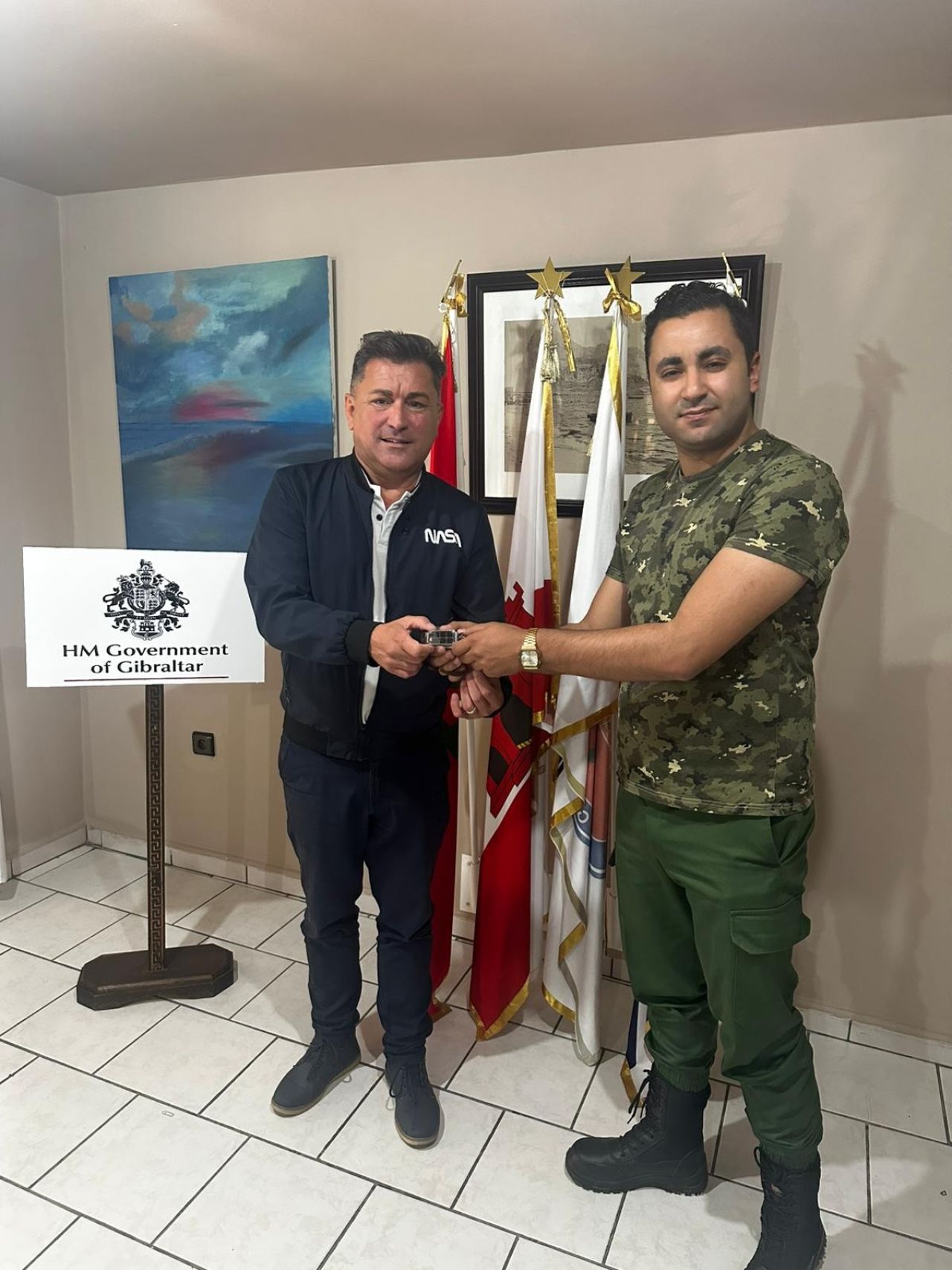Vulture Satellite Tracking Device Goes Back Across The Strait

A Rüppell’s Griffon Vulture fitted with a satellite transmitter in Morocco recently drowned while crossing the Strait. Its transmitter was returned to the tracking team through coordination between organisations in Gibraltar and Morocco.
A statement from the Government follows below:
Ruppell’s Griffon Vulture is an African species that is increasingly migrating into Europe, usually in groups of Eurasian Griffon Vultures,which is the most common European species. It is now a regular in the region, including Gibraltar.
A Ruppell’s Griffon Vulture that attempted the crossing recently sadly did not make it. It had been fitted with a colour ring and a satellite transmitter in Morocco and had been tracked across the Strait, losing height and clearly in trouble. While large birds of prey are regularly rescued at sea by the Environmental Protection and Research Unit (EPRU) and rehabilitated by the GONHS/Department of Environment rescue team, this one sadly drowned and washed up in the area of Camp Bay.
It was collected from there by EPRU and handed to Vincent Robba of the rehabilitation team, who retrieved the satellite transmitter.
The transmitter had been placed in Morocco by a team working on vultures, including the re introdcution of the Griffon Vulture on Jbel Moussa, led by Rachid El Khamlichi, known to both the General Secretary of GONHS Dr Keith Bensusan and Minister for Environment Prof John Cortes. Dr Bensusan contacted Mr El Khamlichi, and Minister Cortes, who also has responsibility for relations with Morocco, mobilised his Ministry officials who in turn contacted the Gibraltar Morocco Business Association (GMBA). This resulted in the satellite transmitter being taken back to Tangier and presented by Steven Marin of GMBA to Asrar Mounir, the Head of the Asilah Forestry Development Centre who are responsible for the tracking programme.
While the story is a sad one for the unfortunate vulture, it serves to illustrate the ties that exist between NGOs and Government bodies on both sides of the Strait. Closer co-operation and exchange visits are being planned, aimed at enhancing conservation and knowledge of migration in the region.
Latest News
- Government Statement On Unite The Union’s Press Release Regarding GHA Allied Health Professionals
- Minister Arias Vasquez Expresses Disappointment Following GSD Statement On The GHA
- Action For Housing Calls For Rooke Elderly Care Facility To Be Used As Government Rental Stock
- St. Theresa’s B&UB Crowned Champions
- 36th Annual Painting Competition Exhibition Of Entries And Winners
- Government Introduces New Regulatory Framework for Food Delivery Sector
- Military Training Exercises Next Month
- Workshop to Unmask the Financial Flows Behind Human Trafficking and Modern-Day Slavery
- Unite calls for “Urgent Response” from HMGOG to Address Issues of Pay Parity for Allied Healthcare Professionals
- Youth Achievement Awards Ceremony Celebrates Exceptional Young Talent




